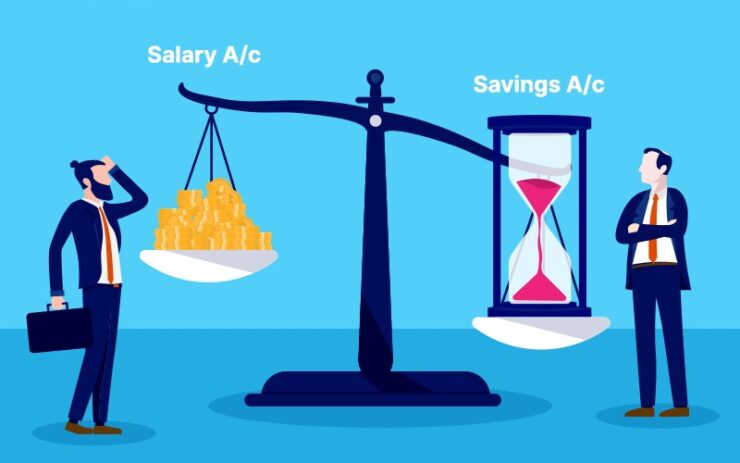Starting a new job means adjusting to fresh routines, including where your salary lands. If it’s going straight into your savings account, you might wonder if there’s a better setup for managing your money. That’s where the question of whether to switch to a salary account may arise.
In this article, we’ll explore whether switching to a salary account might be right for you. We’ll look at what makes salary accounts different from regular savings accounts. Furthermore, we will look at the unique benefits they offer besides handling your paycheck.
What is a salary account and how is it different from a savings account?

A salary account is specifically designed for employees to receive their monthly salaries, while a savings account serves as a general-purpose account for anyone to deposit and save funds. Here are some key differences between the two:
-
Purpose and setup
A salary account is opened by an employer for the purpose of depositing monthly wages. In contrast, a savings account is meant for personal savings and can be opened by any individual.
-
Minimum balance requirement
Salary accounts typically have a zero-balance feature, meaning there’s no minimum balance requirement. However, most savings accounts require maintaining a minimum balance or fees.
-
Account features and perks
Salary accounts often come with additional perks like preferential interest rates, overdraft facilities and easier access to loans. Savings accounts, while offering interest on deposits, usually come with standard banking features.
-
Conversion and eligibility
A salary account can be converted into a savings account if salary deposits stop, often after three months. Conversely, anyone can open a savings account, regardless of employment status.
Step-by-step guide for converting your savings account to a salary account

To convert your savings account to a salary account, follow these steps:
-
Check your eligibility
Start by confirming with your bank that your account can be converted to a salary account. This typically involves verifying your employment status with an organisation that has a partnership with the bank.
-
Obtain the application form
Visit your bank’s branch or website to access the necessary application form. This form is crucial as it captures all the details needed for the conversion.
-
Complete the form and gather documents
Fill out the form with accurate details and gather documents like your ID proof, address proof and employment proof (such as a salary slip or employment letter).
-
Submit the form and documents
Submit your completed form along with the required documents at the bank. Some banks also allow online submissions, making the process easier.
-
Await confirmation
After verification, the bank will process the conversion. Once approved, you’ll receive a confirmation, either in person, via email or through a notification on your banking app.
What are the perks of a salary account?

A salary account offers a variety of perks tailored for salaried individuals, making it more than just a place to receive your paycheck. Here are some common benefits you’ll find with most salary accounts:
- Zero minimum balance – Unlike savings accounts, salary accounts typically don’t require a minimum balance. This gives you flexibility without worrying about maintaining a specific amount.
- Overdraft facility – Many salary accounts come with an overdraft option. This allows you to withdraw more than your balance when needed, which can be helpful during emergencies.
- Ease of access to loans and credit – Salary accounts often provide quicker access to personal loans, home loans and other credit facilities, sometimes with preferential interest rates.
- Exclusive offers and rewards – Many banks provide cashback offers, discounts and reward points on debit card purchases. Salary accounts can also include benefits like complimentary insurance for accidental coverage.
- Investment assistance – Some salary accounts come with access to investment services, such as mutual funds or fixed deposits, making it easier to grow your savings and plan for the future.,
Summing up
Converting your digital savings account to a salary account could be a smart move, especially if you’re looking to maximise financial benefits tailored to your income.
With perks like zero minimum balance, easy access to credit and exclusive offers, they simplify banking for salaried individuals.
Salary accounts are recommended for anyone in stable employment, as these accounts offer flexible, cost-effective banking solutions that align with regular income cycles.
However, it’s essential to consider your bank’s specific offerings, as features and benefits can vary. Evaluate your options to make the most informed decision for your financial well-being.

